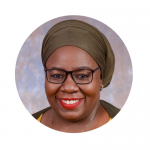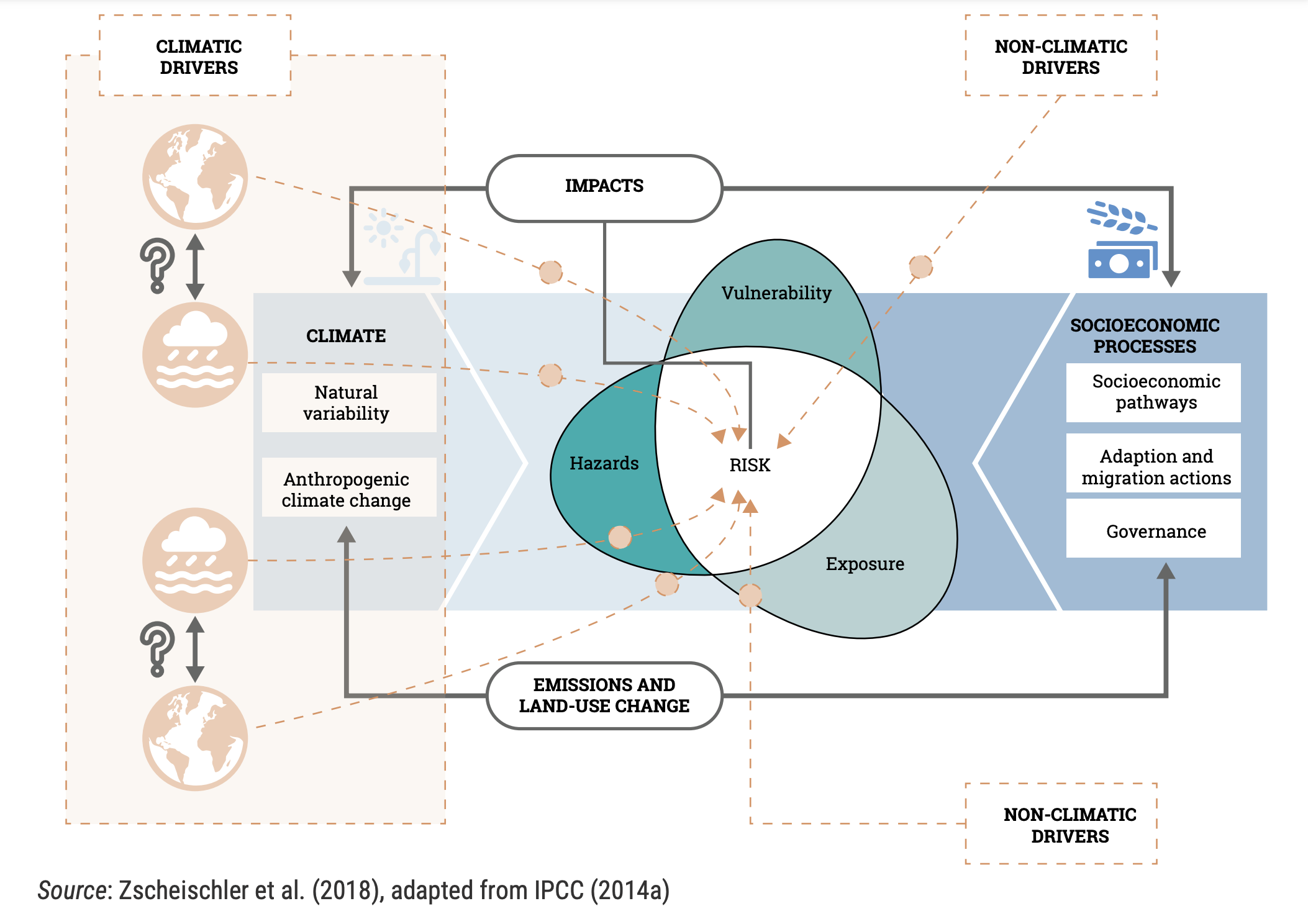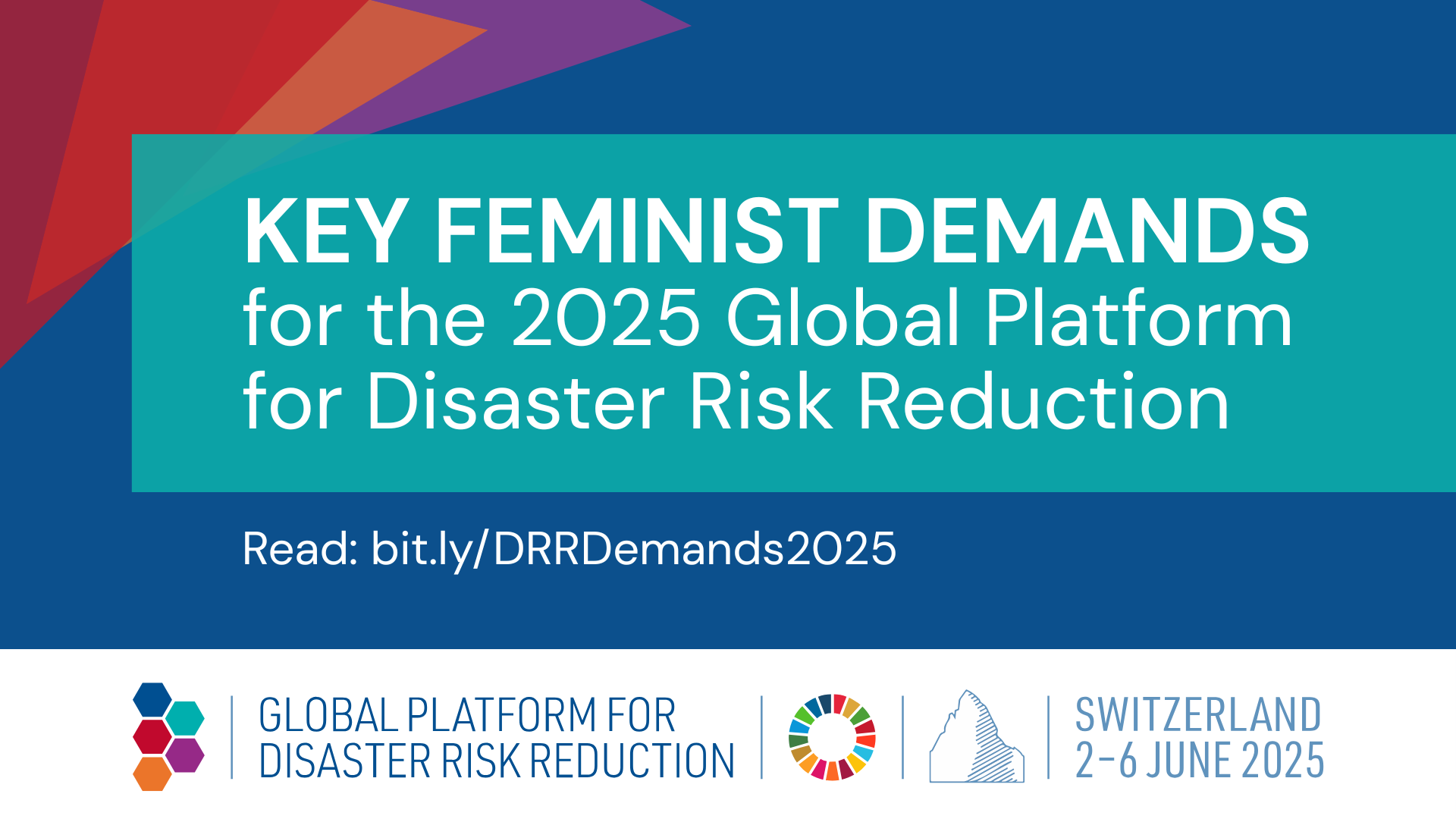By Mwanahamisi Singano, Director of Policy at WEDO
Disasters are not natural.
Disasters are not natural. That phrase may be jarring to some, but it is a necessary truth. What we call “natural disasters” are not freak occurrences of nature, but the consequence of human-made vulnerabilities and decisions shaped by inequality, exploitation, and systemic injustice. When hazards happen, be they storms, droughts, pandemics, or wildfires, they collide with structural conditions, including economic precarity, environmental degradation, racist and patriarchal governance, and widespread social exclusion. The result is disaster.
But not everyone bears the brunt of disasters equally. Across the globe, from coastal villages in Sumatra to crowded informal settlements in Africa and the Americas, poor, Indigenous, and marginalized communities suffer first and worst. Gender remains a key variable: women, in particular, are consistently hit harder and recover more slowly. Why? Because the systems that produce and reproduce disaster risk are the same ones that often deny women and girls power, voice, safety, and resources.
Financing is unjust.
Despite powerful global agreements such as the Sendai Framework, CEDAW General Recommendation 37, and the Paris Agreement, investment in disaster risk reduction remains appallingly low. In 2021, all official development assistance (ODA) amounted to only $178.9 billion. The UNDRR Financing Disaster Risk Reduction in Humanitarian and Crisis Settings report indicates only $3.66 billion, or 12% of all disaster-related international aid in 2021, was allocated to disaster prevention and preparedness. The overwhelming majority, about 85%, amounting to $26.11 billion, went to emergency response. A mere 3% reached reconstruction, relief, and rehabilitation efforts. As a result of this unjust financing pattern, countless families remain stranded in camps and makeshift shelters for months and even years after disaster strikes.
In a world fueled by greed, powered by fossil fuels, and governed by the interests of wealthy corporations responsible for ecological and social harm, risk creation is far outpacing risk reduction. With just five years left to meet the Sendai Framework targets, disaster impacts on people, public services, and ecosystems are intensifying at an alarming rate. Financing for disaster risk reduction, adaptation, and climate action must be delivered at the scale needed to end the crisis.
We need system change.
The future cannot be left in the hands of systems that reward extraction over care and that view women and marginalized people as afterthoughts rather than leaders. Data, algorithms, and risk models must reflect the realities and priorities of those most at risk, not just the agendas of those who code and produce them. This world does not need more technocratic risk models and expensive insurance schemes, which will ultimately fail to address the root causes of our unnatural disasters.
We need a system overhaul that places appropriate value on the right data. We must revalue what truly matters: clean air, safe homes, strong communities, healthy forests, Indigenous knowledge, and women’s leadership. These are not just soft assets. They are the bedrock of resilience. Yet most economic and governance systems exclude them entirely from their calculations of risks or impacts, favoring short-term profits over long-term survival.
If we are to build a future that is genuinely safe for everyone, not just the privileged few, we must channel resources where they are needed the most. We must invest in disaster risk reduction that is intersectional, community-led, and justice-driven. Public and private financing for disaster risk reduction must be reimagined to address the structural exclusion of women and gender-diverse communities from climate and disaster governance. This includes radical scaling up resource allocation, establishing community grants, adopting participatory budgeting models, and investing directly in women-led initiatives that strengthen social protection systems, care infrastructure, and collective resilience. Gender-responsive budgeting must be institutionalized across all disaster risk reduction sectors, supported by clear indicators and publicly available tracking systems to measure progress toward transformative outcomes. Ultimately, climate and disaster risk reduction funding mechanisms should be transparent, adaptable, and easily accessible to communities, with simplified access and decision-making authority rooted in local leadership.
Financing disaster risk reduction is not about preserving profit or protecting corporate wealth. It is fundamentally a matter of justice. Fixing the system is not just a technical problem, but a political one. And we need political courage to fix it.
A feminist approach to disaster risk requires us to confront and transform those systems that create and sustain vulnerability. It calls for a bold shift from reaction to prevention, from exclusion to equity, from exploitation to care. This is not a distant vision. It is an urgent imperative.
As co-coordinator of the Women and Gender Stakeholder Group, I will be at the eighth session of the Global Platform for Disaster Risk Reduction (GP2025) this June to help advance this vision, standing alongside others who believe that justice, care, and collective resilience must shape our shared future. That future begins now.
Read the Women and Gender Stakeholder Group’s GP2025 key messages and demands
About the Women and Gender Stakeholder Group
The Women and Gender Stakeholder Group (WGSG) is one of the 15 groups coordinated under the Stakeholder Engagement Mechanism (SEM), engaging in the Sendai Framework for Disaster Risk Reduction. The membership of the WGSG is open to any gender advocates and organizations working on the intersection of gender equality and disaster risk reduction. The group is convened by the Women’s Environment and Development Organization (WEDO) and Action Aid. To join the WGSG, fill in this registration form.

For more information about the GPDRR 2025 or the Women and Gender Stakeholder Group, contact Mishy Singano at: Mmwanahamisi@wedo.org.




